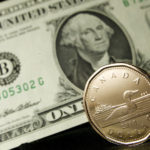Australian dollar snapped a four-day loss against its US counterpart on Tuesday, after Reserve Bank of Australias Deputy Governor Philip Lowe cooled recent speculation that the bank was close to intervention in the currency market, as the bar for such a move was high.
AUD/USD touched a session high at 0.9204 at 7:40 GMT, after which consolidation followed at 0.9187, up 0.28% for the day. Support was likely to be received at November 25th low, 0.9120, while resistance was to be encountered at November 22nd high, 0.9250.
Reserve Bank of Australia (RBA) eased recent speculation that it might consider an intervention in the markets in order to reduce the value of the national currency and facilitate Australian exporters competitiveness. “We don’t rule intervention in or out, that’s been a long-standing practice,” Deputy Governor Lowe said in response to an audience question following a speech in Sydney, cited by Bloomberg. “In the past, we have been prepared to intervene in the currency market when it’s clear the currency was misaligned or the market wasn’t working well. The threshold for intervention though is fairly high.”
Meanwhile, the kiwi dollar traded on positive territory against the greenback today ahead of the release of the trade balance report out of New Zealand, scheduled for 21:45 GMT. The trade deficit probably widened to 0.350 billion NZD in October, after a month ago the deficit figure was 0.199 billion NZD.
NZD/USD climbed to a session high at 0.8265 at 7:40 GMT, after which the pair consolidated at 0.8227. Support was likely to be found at November 25th low, 0.8184, while resistance was to be seen at November 21st high, 0.8272.
In the United States, on Monday it became clear that pending home sales fell for a fifth consecutive month in October due to higher mortgage rates and fewer homes available for sale in the country. According to a report by the National Association of Realtor’s (NAR), the index, gauging pending home sales, decreased 0.6% to reach a value of 102.1 in October, or the lowest level since December 2012, after another 4.6% drop in September, a revision up from a drop of 5.6% previously. Experts’ forecasts have been confounded, as they pointed a 2.0% gain.
Elsewhere, the Aussie was losing ground against the kiwi dollar, with AUD/NZD pair down 0.15% on a daily basis to trade at 1.1149 at 9:30 GMT, after touching 1.1137 yesterday, or the lowest point since October 2008. The Reserve Bank of New Zealand (RBNZ) may begin to raise its benchmark interest rate from the current record low level of 2.50% by June next year, according to projections by experts. The pair might plunge even further, as the prospects of a rate hike become more evident.





